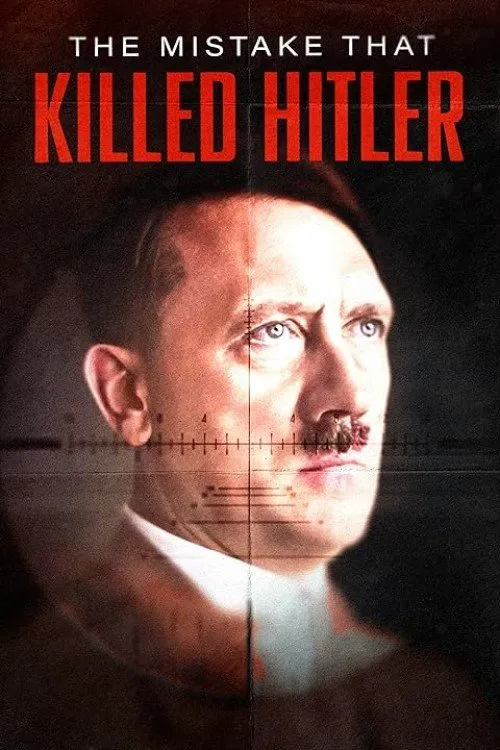The Mistake that Killed Hitler

Plot
In the film "The Mistake that Killed Hitler," a historical drama based on actual events, the once-invincible German leader, Adolf Hitler, faces the harsh reality of his downfall as the Allied forces close in on the Third Reich. Shot in a somber and introspective tone, the movie masterfully weaves together Hitler's inner turmoil as he grapples with the consequences of his mistakes. The film is set in April 1945, a time when Germany is on the brink of collapse. As the Soviet Red Army advances from the East, led by the ruthless Soviet leader, Joseph Stalin, Hitler becomes increasingly isolated in his bunker deep beneath the streets of Berlin. Meanwhile, the Western Allied forces, consisting of American, British, and Canadian troops, push forward from the West, leaving the German capital under siege. Within the confines of the bunker, Hitler is surrounded by his loyal, yet dwindling, group of followers. His generals, Hermann Göring and Heinz Guderian, desperately attempt to persuade him to surrender, but Hitler remains resolute, convinced that his ultimate victory is still within reach. However, his fixation on this notion stems from his inability to confront the harsh realities of his mistakes – strategic and tactical errors that have led Germany to the brink of disaster. One of the primary mistakes that Hitler has made is his decision to declare war on the Soviet Union. His infamous Operation Barbarossa, launched in June 1941, was an unsuccessful attempt to capture Moscow and drive the Soviets from Eastern Europe. While initially, the German army made significant gains, the Russian winter, coupled with the resilience of the Soviet people, eventually turned the tide of the war in their favor. Hitler's decision to invade the Soviet Union has drained Germany's resources and led to heavy casualties, further weakening the German army. Another critical mistake that Hitler has made is his refusal to surrender Stalingrad, the key city of the Volga River that became the site of a bloody battle. In August 1942, Hitler ordered his troops to hold the city at all costs, despite being vastly outnumbered and outgunned by the Soviet army. The resulting Stalingrad battle, which lasted for months, decimated the German 6th Army, and it was never heard from again. This cataclysmic defeat has had far-reaching consequences, as it has severely weakened the German war machine and emboldened the Soviet army to push forward with renewed vigor. Hitler's failure to listen to his generals and adapt to changing circumstances has been a recurring theme throughout the war. His reluctance to surrender Sicily in the summer of 1943, despite the Allied invasion being imminent, has led to a costly and unnecessary war on multiple fronts. Additionally, his insistence on maintaining a war footing despite the economic strain has exhausted Germany's resources and further reduced its ability to wage a successful war. As the Allies close in on Berlin, Hitler's grip on reality begins to slip. His inner turmoil is palpable, as he struggles to come to terms with the consequences of his mistakes. Despite his defiance, the writing is on the wall – his ultimate defeat is inevitable. In the face of this reality, Hitler becomes increasingly paranoid, directing his anger at those around him, including his loyal followers and doctors. The film culminates with a harrowing sequence of events, as Soviet troops breach the walls of the bunker and enter the heart of the German stronghold. Hitler, realizing that all hope is lost, takes his own life, joined by his fiancée, Eva Braun. This final act of desperation is a poignant reminder of the devastating consequences of his mistakes – a series of poor decisions that have led to the downfall of the Third Reich and the loss of millions of lives. "The Mistake that Killed Hitler" offers a gripping and introspective portrayal of the final days of the Nazi regime. By delving into the mind of Adolf Hitler, the film sheds light on the complex psychological factors that drive individuals to make catastrophic decisions. The screenplay masterfully captures the intensity of Hitler's inner turmoil as he grapples with the consequences of his actions, ultimately leading to a tragic conclusion that serves as a stark reminder of the devastating dangers of unchecked ambition and the consequences of playing with fire.
Reviews
Recommendations




